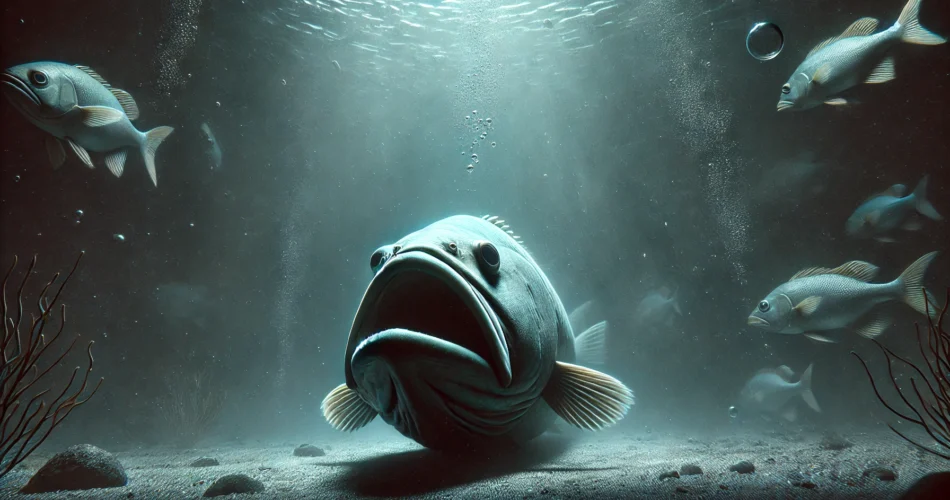When we think of drowning, we usually picture humans struggling in water, unable to breathe. But what about fish, the very creatures that live in water? Can fish drown? It’s an intriguing question that sparks curiosity, and the answer is not as straightforward as it might seem. In this article, we’ll dive deep into this fascinating topic and explore how fish breathe, the challenges they face in their underwater world, and what happens when things go wrong.
Can Fish Really Drown?
You might think fish are the masters of their watery domain, effortlessly gliding through water, breathing without a care. But fish, just like any other living creature, need oxygen to survive. So, can fish drown? While the concept might sound strange, the reality is that fish can indeed suffocate, which is similar to drowning for land animals. The process is different, but the result is the same—oxygen deprivation.
How Fish Breathe: Gills, Not Lungs
Unlike humans who breathe air using lungs, fish have gills, which are specialized organs designed to extract oxygen from water. Here’s how it works:
- Gills: Fish breathe by taking in water through their mouths and pushing it out through their gills. The gills are filled with tiny blood vessels that absorb oxygen from the water and release carbon dioxide, just like our lungs do with air.
- Oxygen Extraction: Water passes over the gill filaments, which are thin structures rich in blood vessels. As water flows over these filaments, oxygen is absorbed into the fish’s bloodstream.
- Continuous Flow: To keep breathing, fish need a continuous flow of water across their gills. If this flow is interrupted, oxygen levels drop rapidly.
Can Fish Drown? The Real Issue: Suffocation
Technically, fish don’t “drown” because drowning implies inhaling water into lungs—something fish don’t have. Instead, fish can suffocate when they can’t get enough oxygen from the water. Several factors can cause this:
- Low Oxygen Levels in Water: Just like air, water contains oxygen, but its concentration can vary. In stagnant or polluted waters, oxygen levels can drop dramatically, making it difficult for fish to breathe.
- Poor Water Quality: Excessive algae, waste, and pollutants can consume oxygen and create a toxic environment. This situation, known as hypoxia, can suffocate fish, especially in closed or poorly circulated bodies of water like ponds or aquariums.
- Gill Damage: Fish can suffer from diseases, infections, or injuries that damage their gills, preventing them from effectively extracting oxygen.
- Trapped or Stuck: Fish can get stuck in nets, debris, or other obstacles that block water flow to their gills, leading to suffocation.
- Fast Currents and Stress: In some cases, strong water currents can force water through the gills too quickly, not allowing enough time for oxygen absorption. Similarly, stress can increase a fish’s oxygen demand, leading to suffocation if oxygen is not readily available.
Can Fish Suffocate Out of Water?
Absolutely. When a fish is removed from water, its gills collapse, rendering them useless for extracting oxygen from the air. Fish essentially “drown” in air because they can’t breathe outside their aquatic environment.
Preventing Fish Suffocation: Tips for Aquarium Owners
If you’re an aquarium owner, here are some tips to ensure your fish don’t face oxygen deprivation:
- Maintain Proper Water Quality: Regularly check and clean your tank to prevent waste build-up and maintain adequate oxygen levels.
- Ensure Proper Aeration: Use air pumps, bubblers, or filters to keep water moving and well-oxygenated. This is especially important for tanks with many fish or during hot weather when oxygen levels tend to drop.
- Monitor Fish Behavior: Fish gasping at the water’s surface, moving sluggishly, or showing signs of distress may indicate low oxygen levels. Address these issues immediately to avoid suffocation.
Fish Can “Drown” in Their Own Way
So, can fish drown? While they don’t drown in the way humans do, fish can indeed suffocate due to a lack of oxygen. Understanding the unique way fish breathe and the challenges they face can help you take better care of these aquatic animals, whether in the wild or your home aquarium. Always keep an eye on water quality, provide adequate aeration, and ensure your fish have the best possible environment to thrive.



